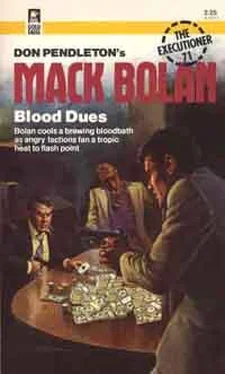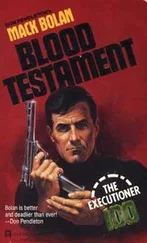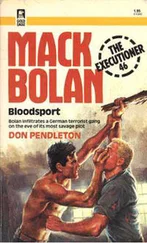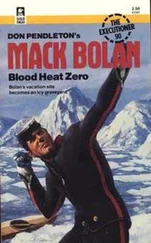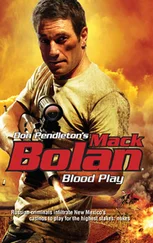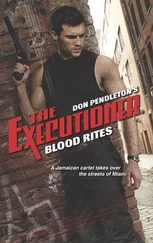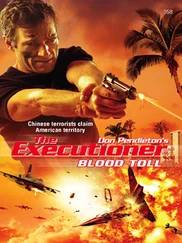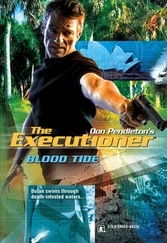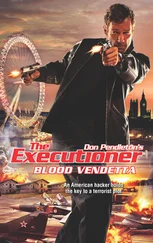The gardeners who tend the yard and flower gardens so solicitously are, in fact, armed guards. With darkness, more traditional uniformed sentries take their place, prepared to shoot first and ask questions later.
The ornate wrought-iron gates, watched by uniformed patrols and television cameras, are reinforced to stop — or at least slow down — most vehicles available to rank-and-file civilians.
The ten-foot wall of masonry around the compound is surmounted by a coil of razor wire, protected by electronic sensors. Strategically positioned trees screen the embassy from the view of sightseers — or snipers; its windows are of special bulletproof glass, incorporating wire mesh to deflect rifle grenades and contain the initial blast within a restricted area. Inside the Fidelista outpost, no one is ever really quite at ease.
In case of an attack on the embassy, no self-respecting terrorist would bother with Jorge Ybarra's office on the second floor. Ybarra was well-known around Miami as the cultural attache of the Cuban mission, a man attuned to finer things than politics — such as art, good literature, vintage wine.
But the FBI and CIA agents realized Ybarra was, in fact, Miami station chief for Castro's secret police, the DGI — Direction General de Inteligencia. It was a covert outfit infamous throughout the western hemisphere for its involvement in exporting Castro's revolution to reluctant customers. In many cases, the organization was little more than an extension of the Soviet KGB; at other times, its officers came up with plans and exercises of their own, inevitably aimed at weakening prestige of the United States, advancing communism in Latin America or the Caribbean.
And agents of the DGI had surfaced everywhere the Cubans had a military presence — in Grenada, once upon a time, in Africa, in Nicaragua.
An early Castroite, Jorge Ybarra chose the service like a careful shopper picking out a suit he knows will fit him for a lifetime. He took to the clandestine world at once, a natural. He fought beside Guevara in Bolivia, before the roof fell in and Che was sold into captivity and death by traitors. As a charter member of the DGI, he had done service for Fidel in Chile, in El Salvador and elsewhere, prior to his posting with the Miami consulate.
Ybarra's specialty was terrorism and insurgency. He had been schooled by masters in Havana, completed training at Patrice Lumumba University inside the Soviet Union. The people's revolution had a use for terrorists now, with victory hanging in the balance for a dozen Third World nations. And Ybarra was the man to see about arranging incidents, assassinations — anything and everything along the lines of raw guerrilla warfare in an urban setting.
As noon approached, the section chief of DGI was alone in his office, mulling over the final details for his greatest coup to date. Everything was in readiness; all had been running smoothly until very recently, and he was beginning to feel some small concern that something might be going wrong.
Jorge Ybarra never worried. He was sometimes puzzled, but never for long; he was occasionally concerned, but only until he could figure out a plan of action to remove the momentary inconvenience. At no time did he seriously consider failure as an option in his plans.
Ybarra was nothing if not effective. In his thinking, problems existed to be solved. They were tests of his native ingenuity and he welcomed them, most of the time.
But he did not welcome any of the things that he was hearing from his contacts on the streets of Miami. His agents in the exile community and in the syndicate were passing on disturbing news.
Another man might have been worried, even discouraged. As it was Ybarra felt concern.
There were some minor storm clouds building up on the horizon, true, but he felt confident that everything would go ahead on schedule.
The private phone on his desk was shrilling and the cultural attache frowned. He waited through three rings before he reached cautiously for the receiver.
Only a handful of men in the city knew this number, and he was not expecting calls from any of them at the moment. Unexpected news was often bad, and now Ybarra steeled himself for what would almost surely be another problem.
"Si?"
"This is Jose."
"I recognize your voice," he told the caller.
"Is this line safe?"
"Of course."
Ybarra had his people check the line each morning, scanning carefully for any sign of taps, any sort of interception that might indicate the FBI was listening in on his private phone. In times of crisis, as of late, he had the lines checked several times each day — and they were clean as of three hours ago.
"There may be trouble," his caller said cryptically.
"Oh?"
Ybarra kept his voice calm, noting a hesitation, a surprise at his reaction in the caller's own shaky tone.
"You've heard the news?"
"I hear much news. Be more specific."
"Toro. Drake. The rest of it."
"What rest?"
He felt concern, but was careful to keep all traces of it from his voice.
"There have been shootings, incidents..."
Ybarra released his breath in a weary sigh.
"There are incidents every day," he said, allowing a trace of annoyance to surface in his tone.
"Not like this. I am afraid..."
"I see."
"I am afraid the plan may be in jeopardy," the caller continued.
"You exaggerate."
"But Toro..."
"One man. Hunted. Outcast. He is nothing."
"And Tommy Drake?''
Another sigh, this time audible over the line.
"These gangsters kill each other regularly. Why concern yourself with their misfortunes?"
"But if there is some connection...."
"Basta! That's enough! You are creating problems in your mind where none exist." Having delivered the reprimand, he allowed his tone to soften. "Rest easy. Everything is ready. Every possibility has been accounted for. You told me yourself."
The caller cleared his throat, and when he spoke again he sounded calmer but still uncertain of himself.
"I know, but..."
"No more, now." Ybarra cut him off. "You represent the people's revolution. All the masses put their faith in you. Be worthy of their trust. If nothing else, be worthy of the price you have received.''
The caller almost choked on his reply.
"Si. Comprendo."
"Bien."
Before the other man could think of something else to say, Ybarra cradled the receiver. He was certain that "Jose" had understood his meaning, thinly veiled behind his spoken words. The project's ultimate success or failure rested on his shoulders, and if it should fail, then he would have to bear the burden.
The cultural attache thought of Tommy Drake and his assassination. It would hamper drug trade in the south of Florida, but only briefly, virtually unnoticeable at street level, where the pushers and consumers made their deals. Another Tommy Drake would come along, perhaps before the day was out, and the flow of pure cocaine and heroin from Cuba would continue as before.
As for the man called Toro, his escape from prison might be cause for some concern — but only to his caller.
Jorge Ybarra had no more to fear from Toro than he did from any of the countless other rightist exiles living in Miami. Any one of them would kill him, but he refused to let them have the chance.
Ybarra was a survivor by instinct and by training. He intended to go on surviving in the cause that he had chosen for his own.
No matter if the several strange events should be connected by some stronger thread than mere coincidence. It was a troubling thought, but Ybarra finally dismissed it as unlikely — or, in any case, too little and too late to sabotage his plans. The wheels were greased, already in motion, and within twenty-four hours they would be grinding over anyone who tried to oppose him.
Читать дальше
